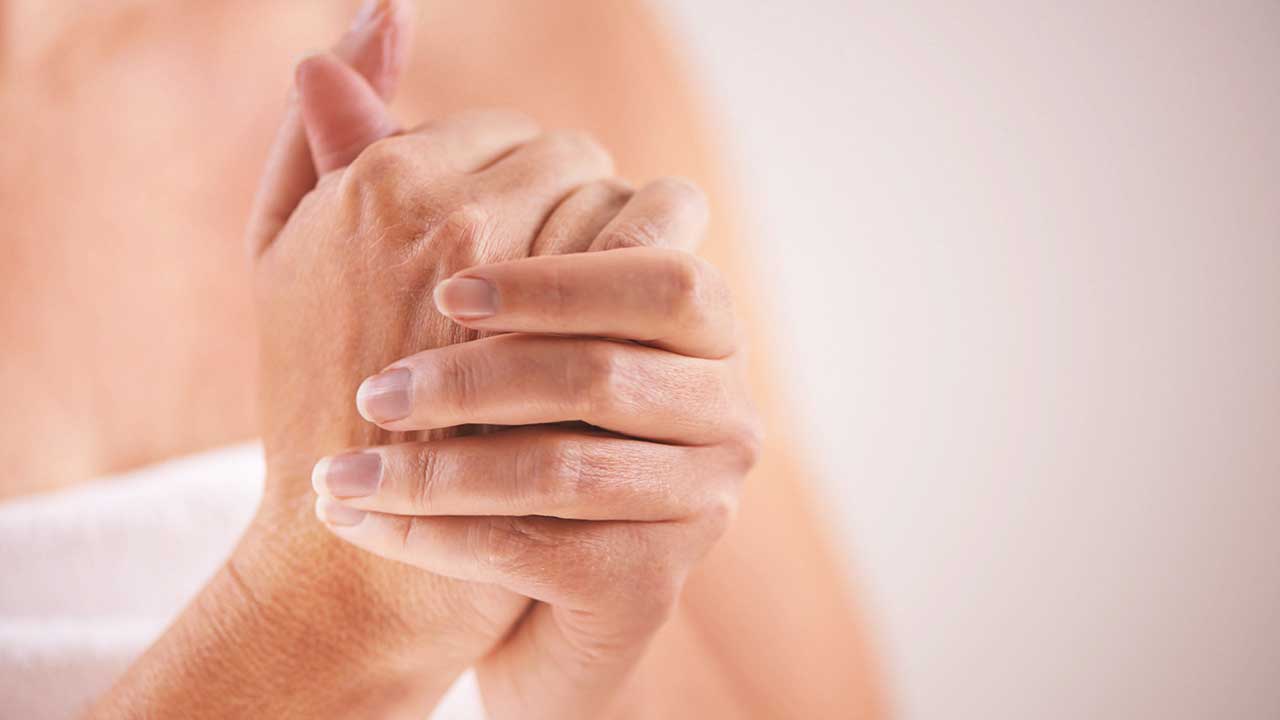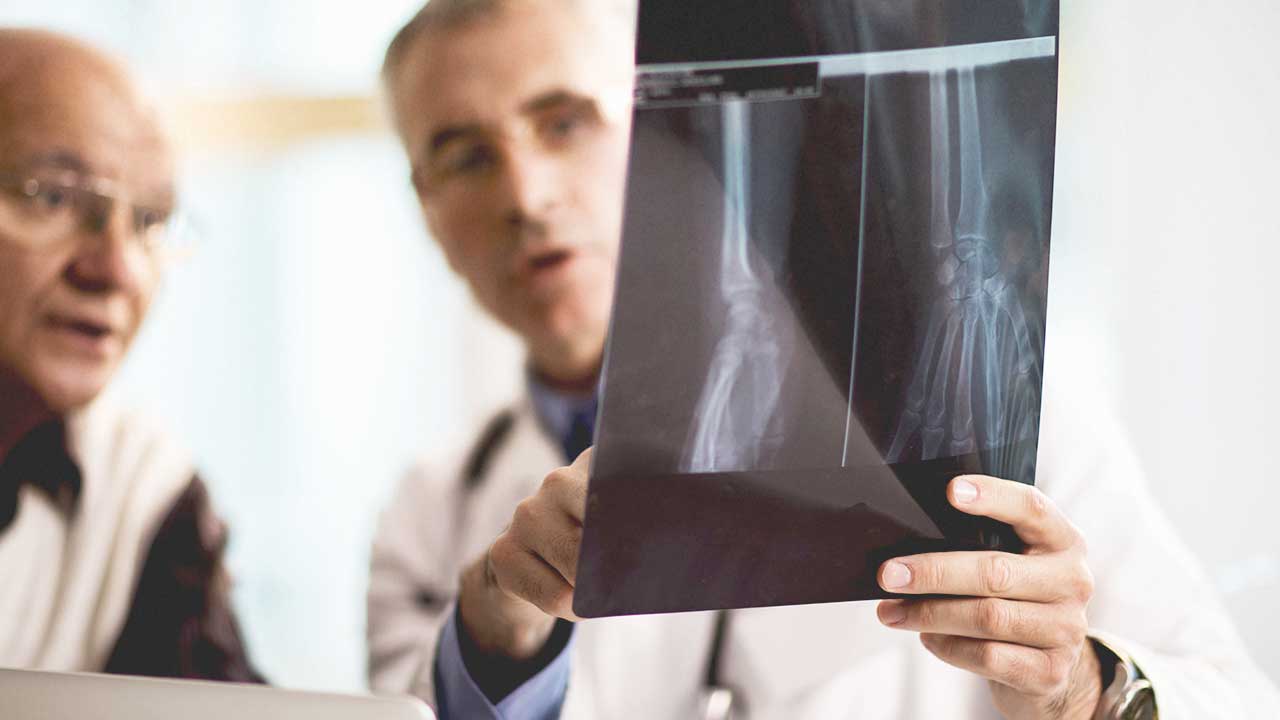
What Is Psoriatic Arthritis?
Psoriatic arthritis is a chronic form of inflammatory arthritis. It can develop in people with psoriasis. Psoriasis is a skin condition that causes patches of red, scaly skin. There's no cure, so treating symptoms is a priority. Your doctor may prescribe medications to reduce inflammation and pain. There are also natural remedies and lifestyle changes that may help relieve symptoms and improve your overall quality of life.
Causes of Psoriatic Arthritis
It's not known for sure what triggers psoriatic arthritis, but it occurs when the immune system starts attacking healthy tissue and cells. This causes inflammation and pain in your joints.
Though it is not known what causes psoriatic arthritis, it is suspected that genetic factors come into play. Infection is also thought to trigger the overactive immune system.
Symptoms of Psoriatic Arthritis
Without treatment, symptoms of psoriatic arthritis will often get worse over time. Before setting out to find possible remedies, it's helpful to understand how this condition can affect your body.
Irritated Joints
Joints that are swollen, painful, and warm to the touch are a common symptom. Joints can be affected on both sides of the body, or on only one side. It can affect one joint or multiple types of joints.
Lower Back Pain
The particular type of lower back pain associated with psoriatic arthritis is called spondylitis. This condition causes the vertebrae between your spine and pelvis to become inflamed, resulting in pain.
Swollen Toes or Fingers
Painful, noticeable swelling in the fingers and toes is common. Swelling may be the first symptom for some patients, even before joint pain.
Foot Pain
Many psoriatic arthritis patients feel pain where the ligaments attach to the bones in your feet. These locations are in the back of your heel and the sole of your foot.
There is no cure-all for every possible symptom. However, some natural remedies can help temporarily ease these effects.
Omega-3 Fatty Acids
The body converts omega-3 fatty acids into anti-inflammatory chemicals. Studies involving people with rheumatoid arthritis (RA) and other inflammatory diseases indicate that fish oils may decrease inflammation and stiffness in joints.
Healthy fish oils are found in salmon, mackerel, tuna, herring, halibut, and cod. According to the Arthritis Foundation, pregnant women should avoid king mackerel and eat no more than 8 ounces of albacore tuna each month, due to potentially harmful mercury levels.
Fish oils are also available as a dietary supplement. High levels can interfere with some medications, so talk to your doctor before taking fish oil supplements.
Turmeric
Some patients find that turmeric, an herb in the ginger family, may ease psoriasis and psoriatic arthritis flare-ups. According to the National Psoriasis Foundation, the anti-inflammatory properties of turmeric are a frequent topic of study. You can add a touch of turmeric to almost any dish. It's also available as a dietary supplement. Ask your doctor or naturopathic practitioner to advise you about the correct dosage.
Diet and Weight Management
Some of the foods you eat may trigger an inflammatory response. A study reported by the Journal for Vitamin and Nutrition Research suggests that plant-based foods can help regulate the inflammatory process. Therefore, a diet rich in vegetables, fruit, and whole wheat can reduce inflammation.
A healthy diet can also help you maintain a healthy weight. Excess weight can add stress to your joints and interfere with mobility.
General Joint Care
Use a heating pad or take a soothing warm bath to loosen up stiff joints and muscles. Use ice or a cold pack on your joints and muscles to help relieve pain. Whenever possible, use your entire hand rather than just some of your fingers to push doors and to lift heavier objects. Use assistive devices to open bottles and jars so you don't strain your fingers and hands.
Exercise
It's hard to think about exercise when experiencing uncomfortable symptoms, but exercise is important for your health. It can help strengthen muscles and increase flexibility. Exercise can also help you maintain a healthy weight so you put less stress on your joints and muscles. If you're really hurting, try exercising in a pool. The water will help you build strength without stressing your joints and muscles.
If you don't have time for a daily workout, take several 10-minute breaks to stretch and perform some range of motion exercises. Your doctor, physical therapist, or trainer can recommend specific exercises for your condition.
Regular Rest and Relaxation
Getting a good night's sleep will help you fight fatigue. Try to go to bed at the same time each night and get up at the same time each morning. If you have trouble falling asleep, try taking a soothing warm bath before going to bed.
Also, make some time to rest and relax during your busy day. Need a suggestion? Put your feet up and read or listen to your favorite music for 20 minutes or so.
Naturopathy
A naturopathic doctor is one who concentrates on lifestyle factors and natural therapies to help patients manage illness and chronic diseases. They may help you improve your diet and suggest alternative therapies, as well as discuss therapies that are complementary to conventional treatment. These may include homeopathy, psychology, and spirituality. Many doctors will work in partnership with naturopathic practitioners to provide you with a whole body approach to health. Trying these natural remedies and lifestyle changes can help with your psoriatic arthritis.
The Takeaway
Although psoriatic arthritis is a chronic condition, natural treatment can help alleviate symptoms. When choosing natural treatment, it's important to check in with your regular doctor.
If natural treatments aren't effective, medications like NSAIDs (aspirin and ibuprofen) can be used. Doctors can also prescribe medications like disease-modifying antirheumatic drugs (DMARDs) to relieve severe symptoms and attempt to slow joint and tissue damage.
You should consult your regular doctor if you're experiencing joint pain or any swelling of your fingers or toes, especially if you have psoriasis. Since psoriatic arthritis can come on quickly and leave long-term damage, make an appointment and discuss treatment options as soon as you start having symptoms.
Read more in Moderate to Severe Psoriatic Arthritis Pain Resources


